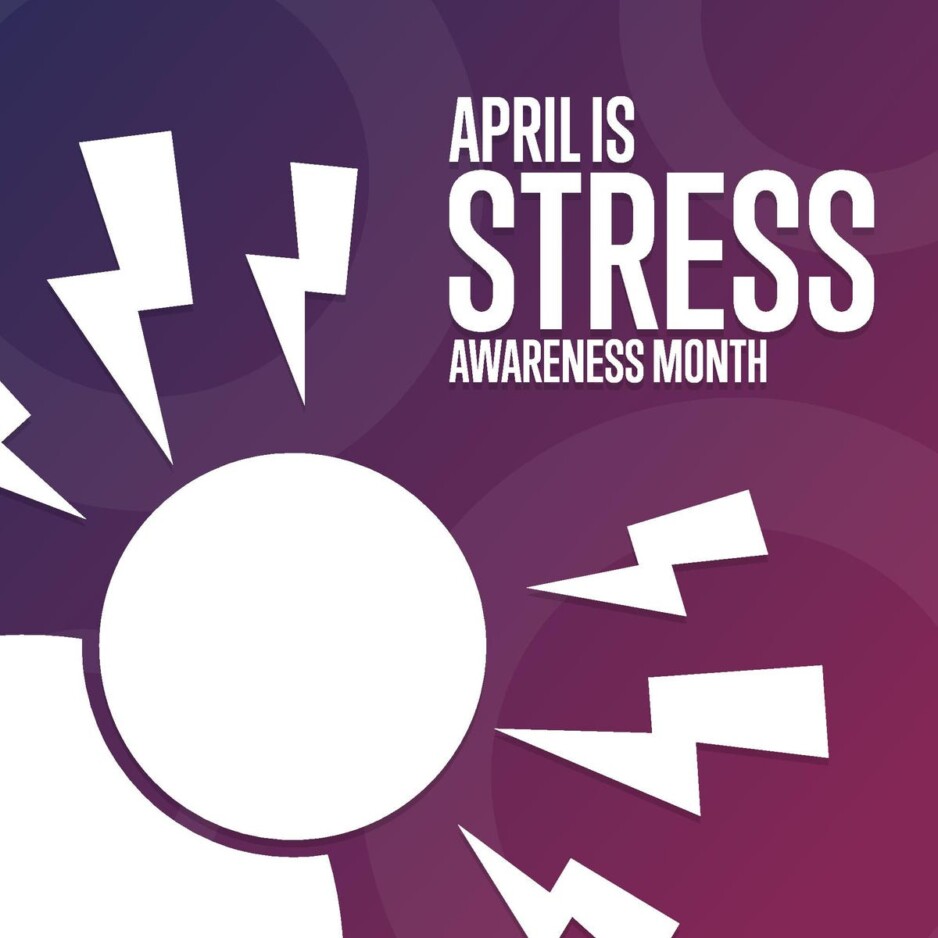April is known as Stress Awareness Month, a time when people around the world come together to raise awareness about the impact of stress on mental and physical health. In today’s fast-paced and high-pressure world, stress has become a common occurrence, leading to various health complications that can affect our daily lives. The importance of recognizing stress and learning how to manage it has never been more imperative. With this month-long observance, we can take the opportunity to educate ourselves on the effects of stress, identify our stressors and learn how to reduce stress levels in our lives. By doing so, we can improve our overall well-being and lead happier, healthier lives.
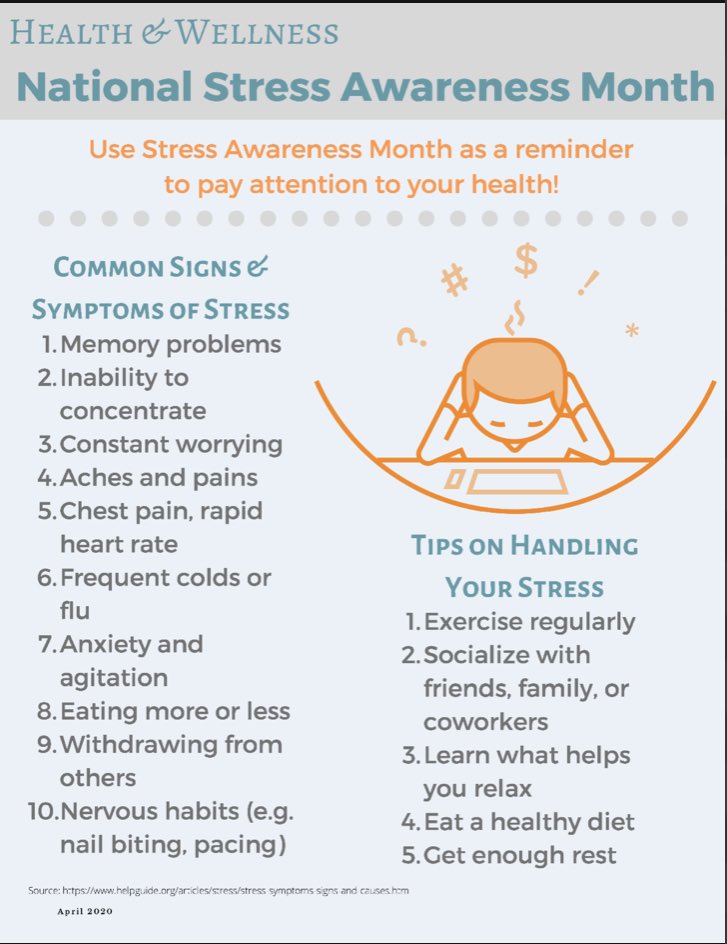
1. What is National Stress Awareness Month?
National Stress Awareness Month is observed in April of each year to raise awareness of the impact of stress on our daily lives and mental health. This month-long campaign aims to educate people on the importance of stress management and to promote effective coping strategies. Stress can be caused by a variety of factors such as work or personal life pressures, financial difficulties, health problems, or major life changes. By recognizing the sources of stress, individuals can take steps to manage stress and improve their overall well-being. This month provides an opportunity to learn about the causes and symptoms of stress and to explore different ways to cope with it. Participating in Stress Awareness Month is an important step towards maintaining good mental health and achieving a balanced life.

2. The history and significance of Stress Awareness Month
Stress Awareness Month was founded in April 1992 by the Health Resource Network, a non-profit health education organization. Since then, the month has been recognized to raise public awareness about the causes and effects of stress, and to promote effective strategies for coping with it. Stress has become a pervasive problem in modern society and contributes to various physical and mental health problems. The purpose of this month is to address this issue, and to empower people to take control of their mental health through self-awareness and self-care. As stated in previous sections, identifying common triggers of stress, incorporating exercise and healthy habits, and seeking social support are all important ways to manage and prevent stress. Stress Awareness Month is an important reminder of the impact of stress on our lives and the importance of taking proactive steps to cope with it.

3. Understanding the impact of stress on our health
In order to fully understand why stress is such an important issue to address, it’s crucial to acknowledge its impact on our health. Stress can lead to a variety of physical and mental health problems including high blood pressure, heart disease, chronic headaches, anxiety, and depression. Studies have shown that chronic stress can even accelerate the aging process at a cellular level. It’s clear that stress should not be taken lightly, and that we all need to find ways to manage it effectively. In the following sections, we’ll explore common causes of stress, the various ways it can be managed, and the importance of seeking help when needed. By taking steps to manage stress, individuals can protect their health, improve their overall wellbeing, and lead happier, more fulfilling lives.
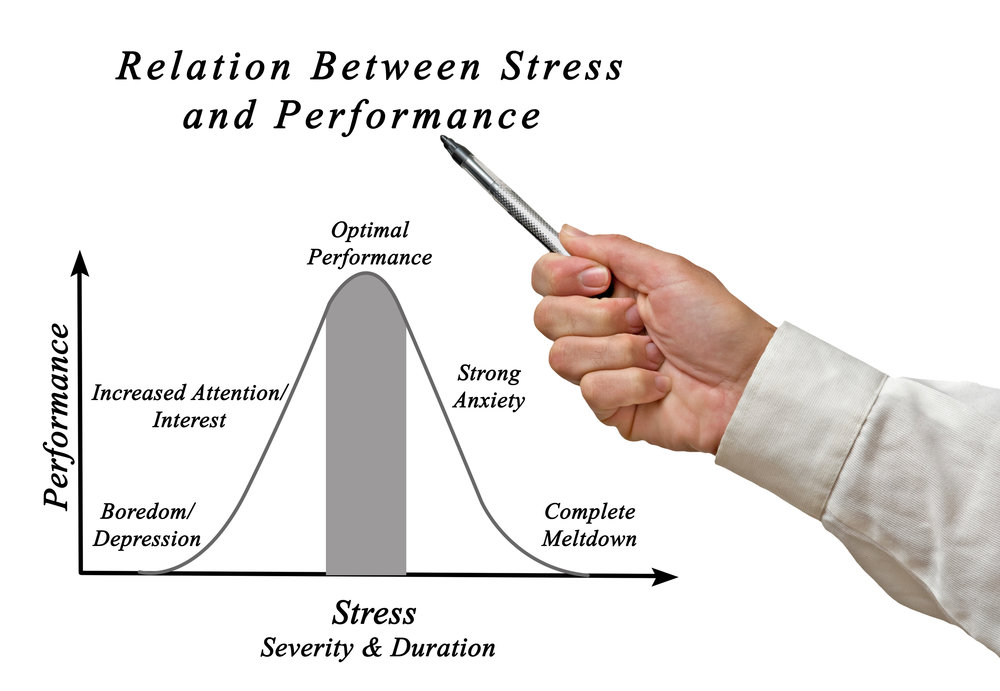
4. Identifying common causes of stress in daily life
As Stress Awareness Month continues, it’s important to take a closer look at the common causes of stress in daily life. As outlined in previous sections, stress can have a significant impact on our physical and mental health, making it crucial to identify and address the root causes. Common sources of stress can include issues with money, work, family, relationships, and housing, as well as experiencing prejudice or discrimination. Additionally, unresolved mental trauma, unmanaged stress, health problems, and drugs or alcohol can also lead to chronic anxiety and stress. By identifying these triggers, individuals can take steps towards prevention and management, such as incorporating healthy habits, communication, and self-care techniques into their daily routine. Remember, managing stress is a critical aspect of overall health and should not be overlooked.

5. The role of self-care in preventing and managing stress
When it comes to managing stress, self-care is an essential component of maintaining mental and physical well-being. As previously mentioned, April is National Stress Awareness Month, and it is a great time to take a close look at one’s daily habits and make positive changes to reduce stress. Self-care involves taking the time to prioritize oneself and personal needs, such as eating healthy, getting regular exercise, and getting enough sleep. Practicing mindfulness and meditation can also help to relieve stress and improve overall well-being. Incorporating regular self-care activities into daily routines can help to prevent and manage stress effectively. By maintaining physical, emotional, and mental reserves, individuals will become better equipped to deal with stress and manage it in a healthy way.

6. Mindfulness and meditation techniques for stress relief
After understanding the impact of stress on our health and identifying common causes of stress in daily life, it’s time to look for ways to manage this overwhelming feeling. One effective method is through mindfulness and meditation techniques. Practicing mindfulness means being fully present in the current moment and acknowledging one’s thoughts and feelings without judgment. This technique can help individuals become more aware of their stress triggers and allow them to manage their responses better. On the other hand, meditation involves focusing one’s attention on a particular object, thought, or activity, with the aim of achieving mental clarity and calmness. Incorporating a regular practice of mindfulness and meditation into one’s daily routine can lead to long-term stress reduction and overall mental wellbeing.

8. Tips for managing work-related stress
In the midst of a busy work culture, it’s important to recognize and manage work-related stress. To start, individuals need to identify their stress triggers, such as being overloaded with work, lacking support, or feeling unappreciated. It’s then crucial to take breaks throughout the day, incorporating healthy habits like exercise and hobbies into their routine, and communicate regularly with co-workers and superiors. By doing these things, individuals can take control of their work environment and reduce their susceptibility to stress. Employers can also assist in managing work-related stress by providing adequate job training and support for staff care. It’s important to remember that everyone experiences stress in different ways, so finding a personalized routine that works best for each individual is key. By prioritizing self-care, individuals can better manage work-related stress and improve their overall well-being.

Identify and manage your triggers
Identifying and managing triggers is an essential aspect of managing work-related stress. Stress Awareness Month reminds us of the importance of taking steps to recognize and control our stressors. By doing so, we can bring balance back to our personal and professional lives. When we understand our triggers, we can begin to take action to address them effectively. This might include making adjustments to our workload, requesting time off to rest, talking to a therapist or training to enhance our coping mechanisms. By addressing our triggers proactively, we can take control of stress and enjoy a healthy and fulfilling life.

Take breaks throughout the day
One of the most important things you can do to manage work-related stress is to take breaks throughout the day. This tip is closely tied to the importance of self-care, as taking regular breaks can help you avoid burnout and maintain your mental and emotional wellbeing. Whether it’s a quick walk outside, a chat with a co-worker, or a few minutes of deep breathing, taking intentional breaks can help you recharge and return to your work with renewed focus and energy. Additionally, studies have shown that taking regular breaks can actually increase productivity and job satisfaction, further emphasizing the importance of this simple practice. If you’re struggling to find time for breaks in your busy workday, consider setting reminders for yourself or talking to your supervisor about ways to incorporate breaks into your schedule. Your mental and physical health will thank you for it!

Incorporate exercise and healthy habits into your routine
Incorporating exercise and healthy habits into daily routines is essential for managing stress, especially in the workplace. One can add small amounts of physical activity like taking stairs instead of elevators or walking around during breaks. Additionally, consuming a balanced diet with important nutrients like vitamin C boosts immunity and helps combat stress. Mindful eating by taking time to eat and chewing slowly is an excellent way to reduce anxiety. Reducing caffeine and sugar intake and switching to water are also good choices to stay hydrated and healthy. Making positive lifestyle choices and focusing on health goals is an important part of reducing stress levels, so individuals can improve their overall wellbeing.
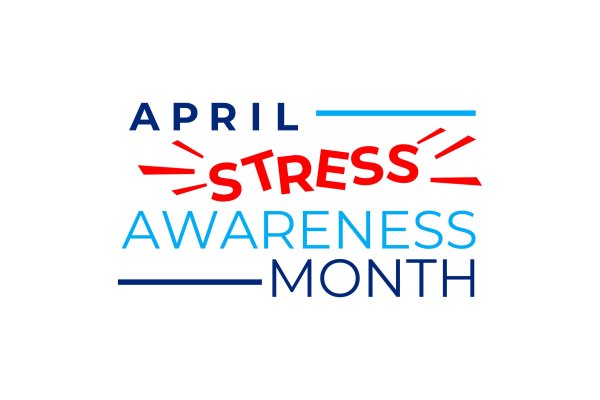
Communicate with co-workers and superiors
Another vital aspect of managing work-related stress is to communicate with co-workers and superiors. Open, honest, and respectful communication can help build strong working relationships and foster a supportive workplace culture. Employees should feel free to speak to their peers and managers about their workload, any issues they may be facing, and the resources they need to get the job done successfully. By doing so, they can identify any potential sources of stress and find ways to mitigate them together. In addition, employees should feel comfortable communicating their boundaries, priorities, and goals to their colleagues and managers. This will help them maintain a healthy work-life balance, avoid burnout, and maximize their productivity. By promoting a culture of clear communication and mutual support, employers can help their employees feel valued, engaged, and satisfied with their work.

Make time for hobbies and self-care outside of work
In today’s hectic world, people often feel like they’re always on the clock. However, it’s important to take some time out to indulge in hobbies and self-care outside of work to help manage and reduce stress levels. National Stress Awareness Month highlights the need for self-care in preventing and managing stress. Whether it’s playing a sport, painting, or reading a book, make time for activities that bring joy and relaxation. This not only helps to relieve stress but also provides a sense of fulfillment and purpose outside of work. Taking care of oneself is essential in leading a healthy and balanced life, and incorporating hobbies and self-care into daily routines is a simple and enjoyable way to do so. Encourage employees to prioritize self-care and support them in taking the necessary steps to achieve a more balanced and fulfilling life.

7. The benefits of exercise and physical activity for stress reduction
As previously discussed, stress can have detrimental effects on one’s health. However, there are various ways to manage stress, and exercise is one of them. Regular physical activity can help reduce stress by releasing endorphins, improving mood, and reducing symptoms of depression and anxiety. In addition, exercise can also promote better sleep, which can lead to a more relaxed mind and body. It’s important to establish a routine of exercise, ideally at least three times per week, to maintain a constant level of fitness. Regular jogging, for example, can help reduce stress hormone levels and stimulate metabolism. By incorporating exercise and healthy habits into one’s routine, individuals can effectively manage stress and improve their overall well-being.
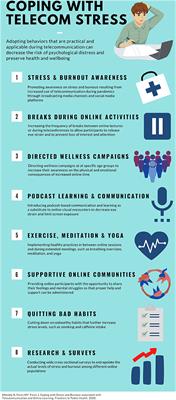
9. The importance of social support in coping with stress
As discussed in the previous sections, stress can have a significant impact on an individual’s physical and emotional health. It is important to recognize the value of social support in managing and coping with stress. Research has shown that people with high levels of social support tend to be more resilient in the face of stressful situations. Whether it be from friends, family members, or co-workers, social support can provide a sense of comfort, validation, and encouragement during challenging times. Additionally, volunteering and connecting with others can improve one’s overall mood and reduce stress levels. It is necessary to make time for social connections and prioritize healthy relationships as a means of managing stress. Incorporating social support into one’s self-care routine not only benefits the individual but can also strengthen their relationships and community as a whole.

10. Seeking professional help for severe and chronic stress.
When it comes to dealing with severe or chronic stress, seeking professional help is important. This can include therapy, counseling, or consulting with a mental health professional. While self-care strategies can be helpful in managing everyday stressors, chronic stress can have serious health consequences and may require additional support. A mental health professional can provide a safe and confidential space to talk about your stressors and work to develop coping strategies that work for you. Remember, seeking help is a sign of strength and taking care of your mental health is just as important as taking care of your physical health. It’s important to prioritize yourself and seek support when needed.

